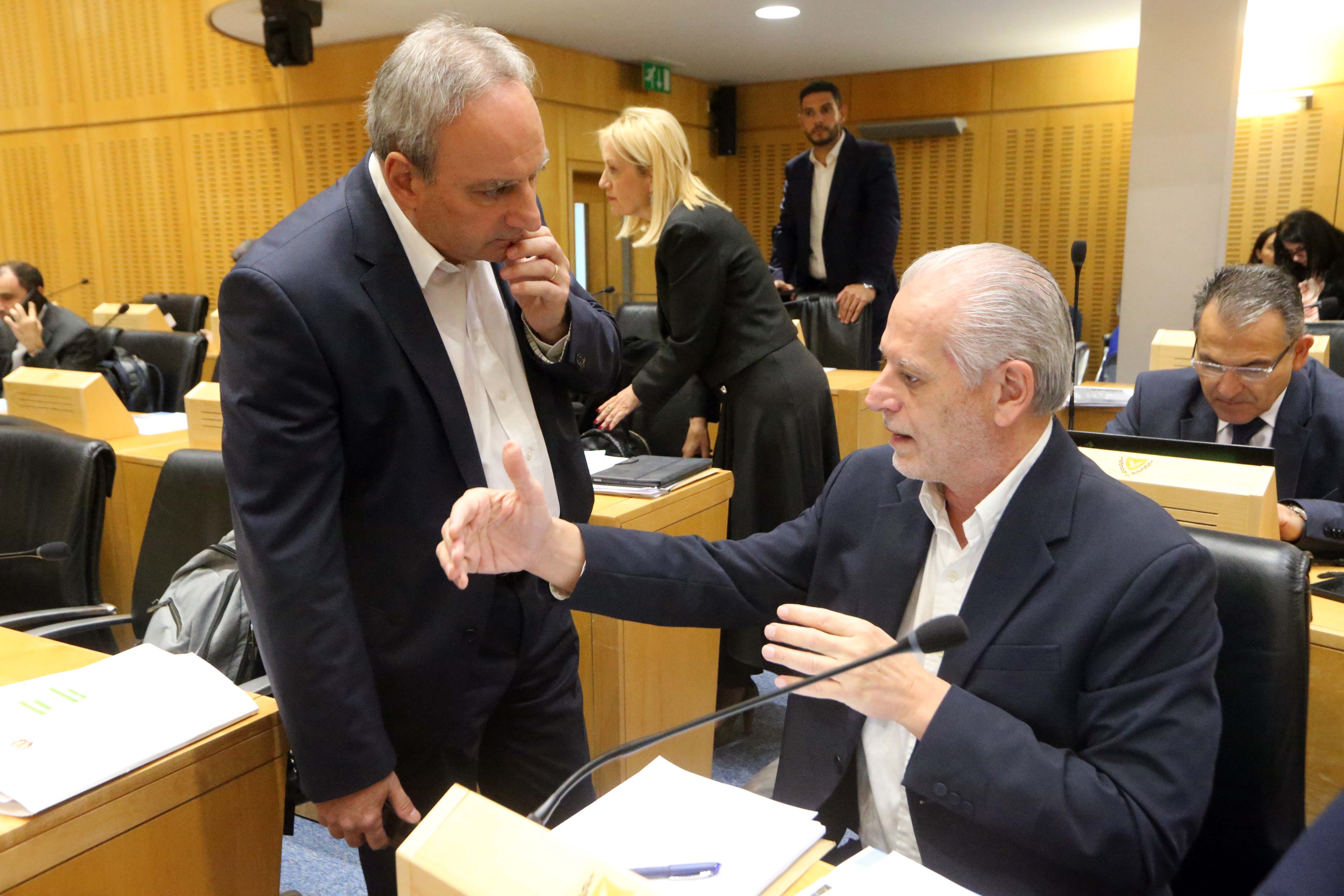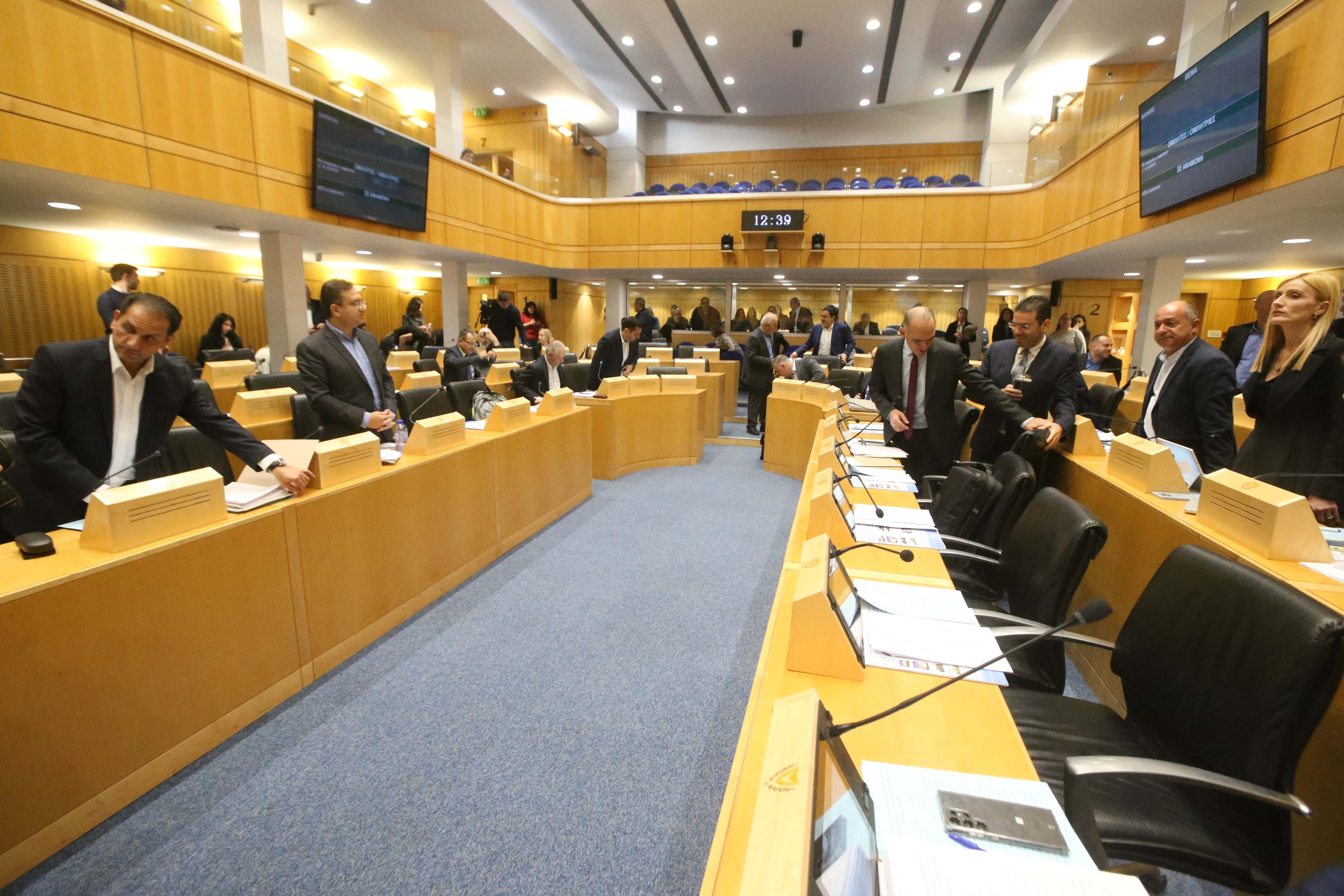The proposed bill to impose a tax on banks’ windfall profits would jeopardise the stability of the financial system, government spokesman Konstantinos Letymbiotis said on Friday.
His comments came a day after the House plenary session rejected Akel’s proposal in a tied vote of 25 in favour and 25 against, with four abstentions.
The defeated bill sought to impose a 5 per cent tax on bank profits, aiming to raise €100 million over two years to support vulnerable groups and borrowers. Akel framed the issue as a choice between ‘serving society or the banks,’ but critics dismissed this as an oversimplification.
“There was no immediate benefit for borrowers, as these funds would have gone directly to the state coffers,” Letymbiotis stressed in his interview on radio Trito.
He explained that such measures that may seem appealing now could have the opposite effect in the long run. “Past experience has shown how similar policies, which ignored fundamental economic principles, resulted in successive waves of taxation,” he noted.
Letymbiotis reiterated that the proposal risked destabilising the financial system, a sentiment echoed by the government and MPs who voted against the bill.
During the House plenary on Thursday, Disy MP Savia Orfanidou argued the tax would not address the gap between lending and deposit rates and might even delay reductions in lending rates as it would give lenders “an alibi” to delay lowering their lending rates.
The Chair of the House finance committee, Diko MP Christiana Erotokritou, shared this concern. While acknowledging Akel’s genuine commitment to social justice, she emphasised the importance of ensuring that the costs are not passed onto existing borrowers.
Commercial banks, for their part, had already announced measures to ease borrowing costs earlier in the week, including subsidised housing loans and fixed interest rates. Bank of Cyprus pledged to start subsidising 1 per cent of the interest rate for the first three years on loans related to a government housing scheme for mountain areas. Hellenic Bank announced a housing loan with a fixed interest rate of 2.95 per cent for the first three years.
The cabinet meanwhile rolled out a scheme subsidising interest rates for housing loans with means-testing. Starting January 1, 2025, borrowers who took out first primary home loans in 2022 or 2023 will benefit from a subsidy of up to 2 per cent on their loan interest rates.

Despite this, the political response to the bill’s rejection continued on Friday. Akel’s General Secretary, Stephanos Stephanou, said political forces responded with their votes to whether they are supporting banks or society.
He pointed out that on the same day, Disy, Diko, and Elam increased betting taxes to give more money to football companies that avoid paying taxes. He said it is now clear who is supporting society and who is supporting the banks.
Stefanou emphasised that even though Akel’s proposal did not pass, it forced banks and the government to acknowledge issues like overcharging and speak about potential measures like interest rate cuts and subsidy plans. The politician added that Akel will continue to push for measures to protect workers and the vulnerable, especially from rising costs.
“Just because they [the banks] are profit-making institutions, does that mean they have the right to profit at the expense of the people? This is not permitted, not even in Europe…Banks must adhere to proper banking practices,” he told radio Trito earlier.
Dipa party leader Marios Karoyian expressed satisfaction with the interest rate cuts for new loans, crediting coordinated efforts. However, he called for the cuts to extend to existing variable loans, saying this is a matter of fairness. He stated that the goal was not to punish banks with profit taxes, but to pressure them into lowering interest rates further.
Karoyian repeated that as a counterbalance to the rejection of Akel’s proposal, Diko proposed the reduction of lending rates and an increase in deposit loans, the provision of cheaper housing plans for young people, the reduction of bank charges and fees, and the rewarding of responsible and consistent borrowers.
For his part, Edek leader Marinos Sizopoulos warned that if bankers continue their policies, his party will bring forward new proposals to support citizens. He criticised the bankers for their role in the financial crisis and their continued practices, which he claimed harm the public. He also noted that Edek had proposed taxing excessive bank profits to compensate depositors affected by the crisis.
Green Party leader George Perdikis, reflecting similar concerns to Akel, condemned the House’s recent rejection of the proposal to tax banks’ windfall profits, arguing it underscores how the interests of banks are prioritised over those of the public. He criticised the government’s actions, stating, “Society is paying to serve interests unrelated to the welfare of the people.”






Click here to change your cookie preferences